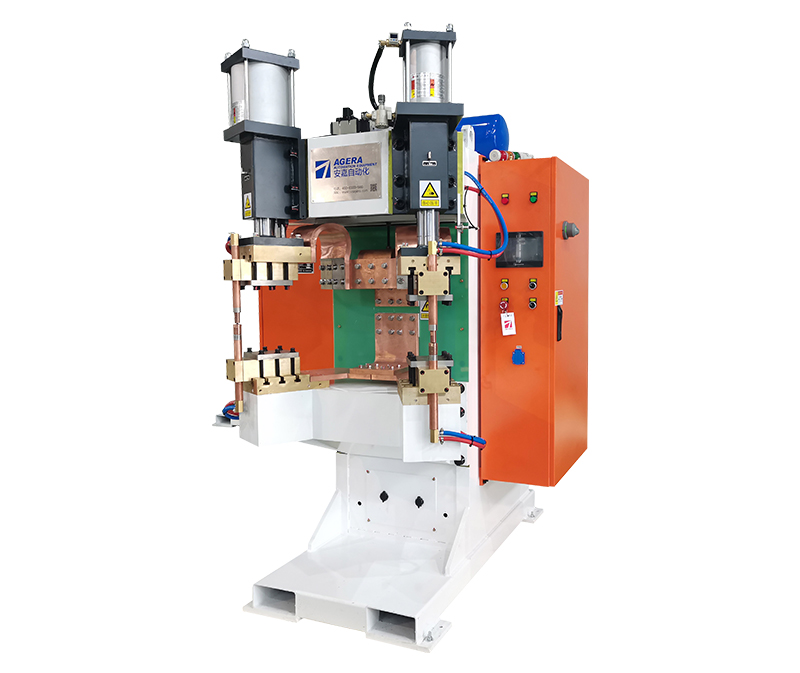Inspection and Maintenance of Three Major Systems in Nut Welding Machines?
Nut welding machines consist of three major systems: the electrical system, the hydraulic system, and the pneumatic system. Proper inspection and maintenance of these systems are essential to ensure the optimal performance, reliability, and safety of the nut welding machine. This article provides guidelines for inspecting and maintaining these three major systems.
- Electrical System:
- Inspect all electrical connections, wires, and cables for signs of wear, damage, or loose connections. Tighten any loose connections and replace damaged components.
- Check the control panel for any error codes or malfunctions. Test the functionality of switches, buttons, and indicators.
- Verify the calibration and accuracy of voltage and current measurement devices.
- Clean the electrical components regularly and remove any dust or debris that may affect their performance.
- Follow the manufacturer’s recommendations for electrical maintenance and refer to the machine’s user manual for specific instructions.
- Hydraulic System:
- Inspect hydraulic hoses, fittings, and connectors for leaks, cracks, or other damage. Replace any damaged components.
- Check hydraulic fluid levels and quality. Replace the hydraulic fluid at the recommended intervals.
- Inspect and clean hydraulic filters regularly to prevent clogging and ensure proper fluid flow.
- Test the pressure and temperature gauges for accuracy and functionality.
- Inspect hydraulic cylinders and valves for leaks or malfunctions. Repair or replace faulty components as needed.
- Follow the manufacturer’s guidelines for hydraulic system maintenance, including recommended fluid types and maintenance schedules.
- Pneumatic System:
- Inspect pneumatic hoses, fittings, and connectors for leaks, wear, or damage. Repair or replace any faulty components.
- Check the air compressor for proper operation and ensure adequate air pressure and flow.
- Inspect pneumatic valves, cylinders, and regulators for leaks, proper functioning, and cleanliness.
- Lubricate pneumatic components as per the manufacturer’s recommendations.
- Clean or replace pneumatic filters to maintain clean and dry air supply.
- Test the pressure and flow gauges for accuracy and functionality.
Regular inspection and maintenance of the electrical, hydraulic, and pneumatic systems are crucial for the reliable and safe operation of nut welding machines. By following the guidelines outlined in this article, operators can identify and address potential issues promptly, ensuring optimal performance and extending the lifespan of the machine. It is important to refer to the manufacturer’s guidelines and user manual for specific maintenance procedures and intervals. A well-maintained nut welding machine will result in efficient production processes and high-quality welds.
